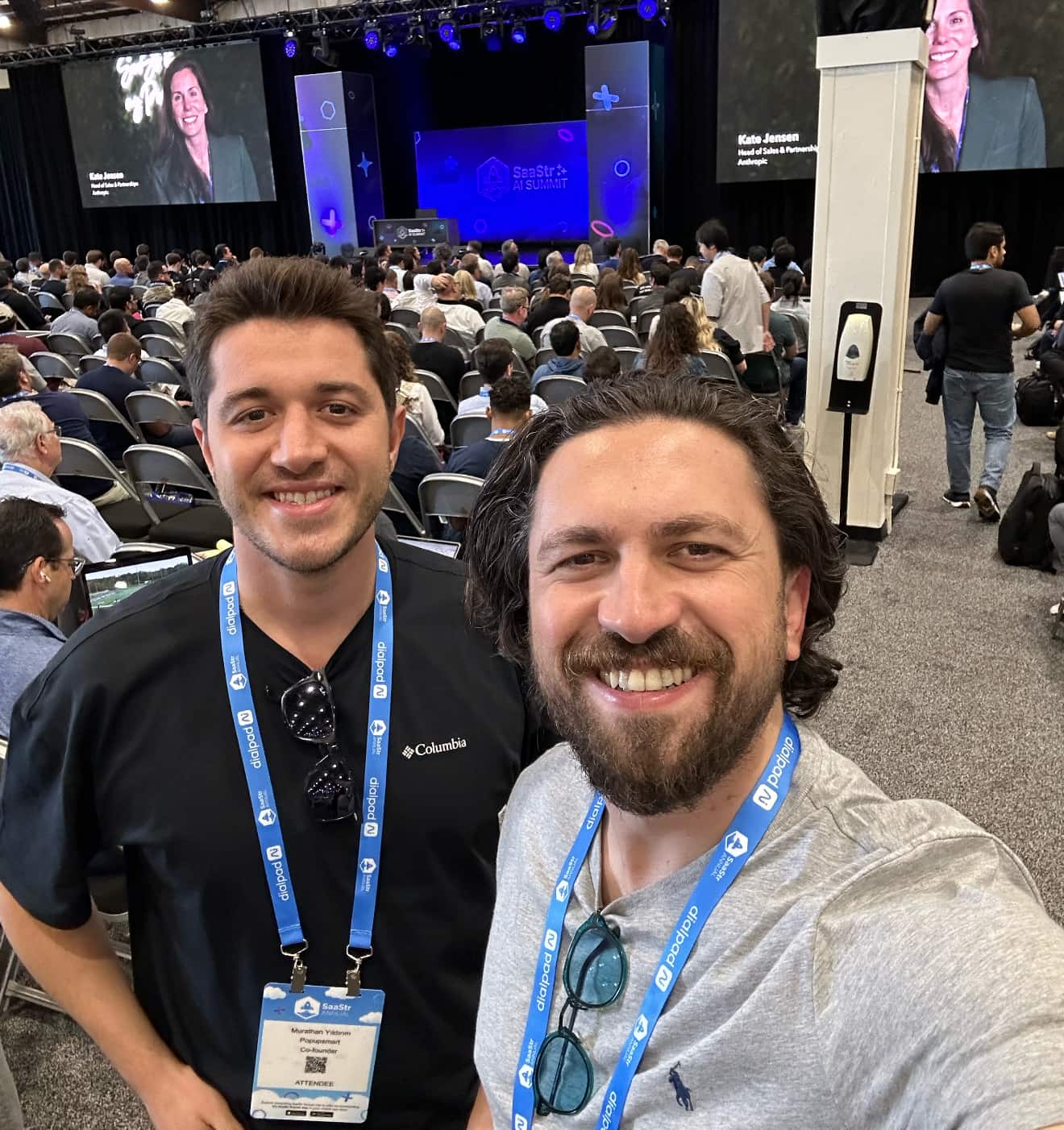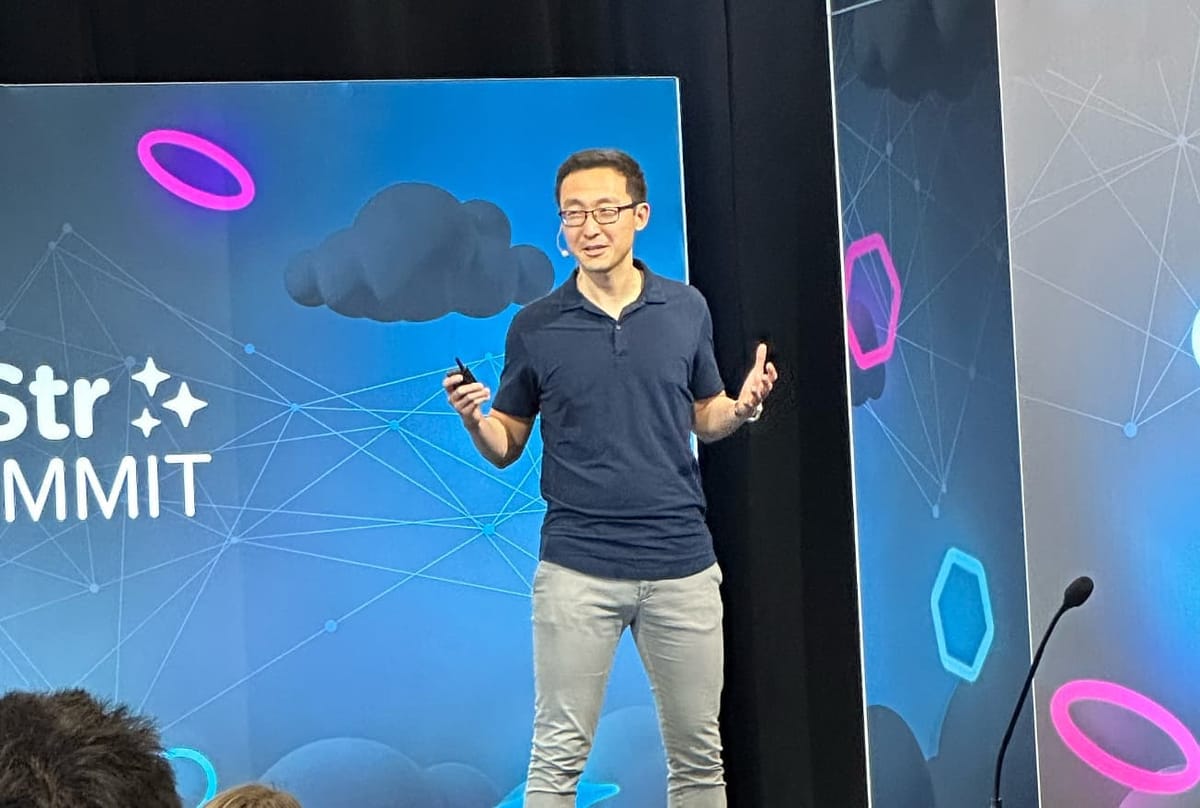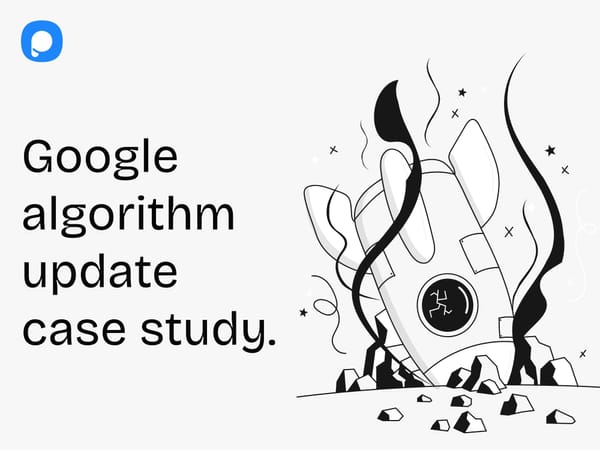Recently, I had the opportunity to attend the SaaStr conference in San Francisco, where Tim Zheng, the founder and CEO of Apollo.io, shared an inspiring story about his company’s dramatic transformation.
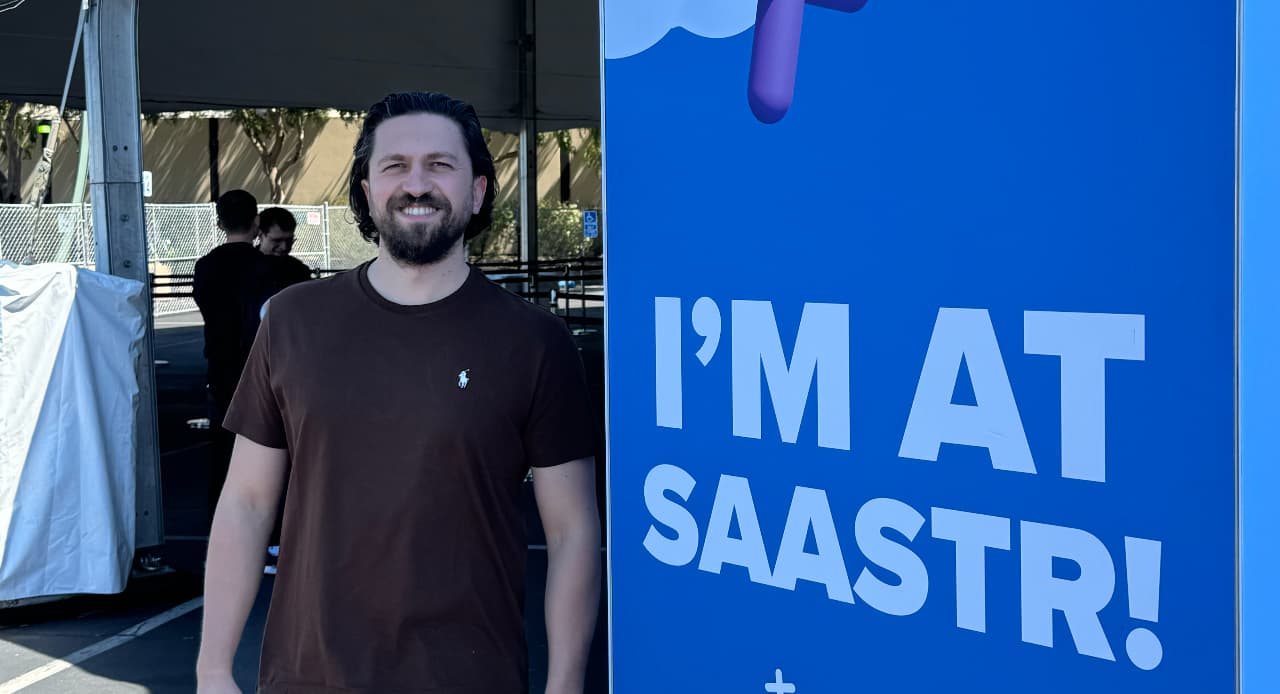
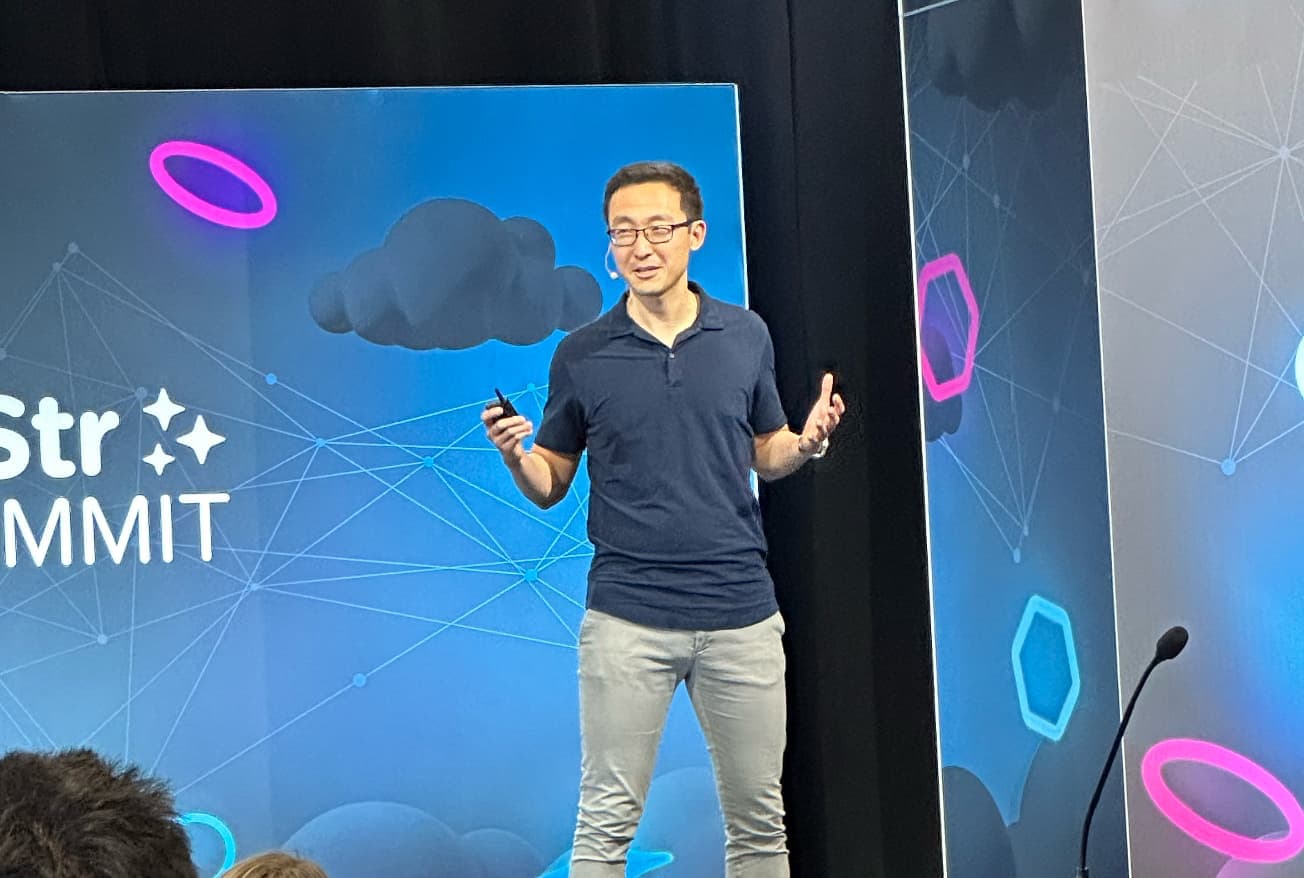
The Early Success and Sudden Stall
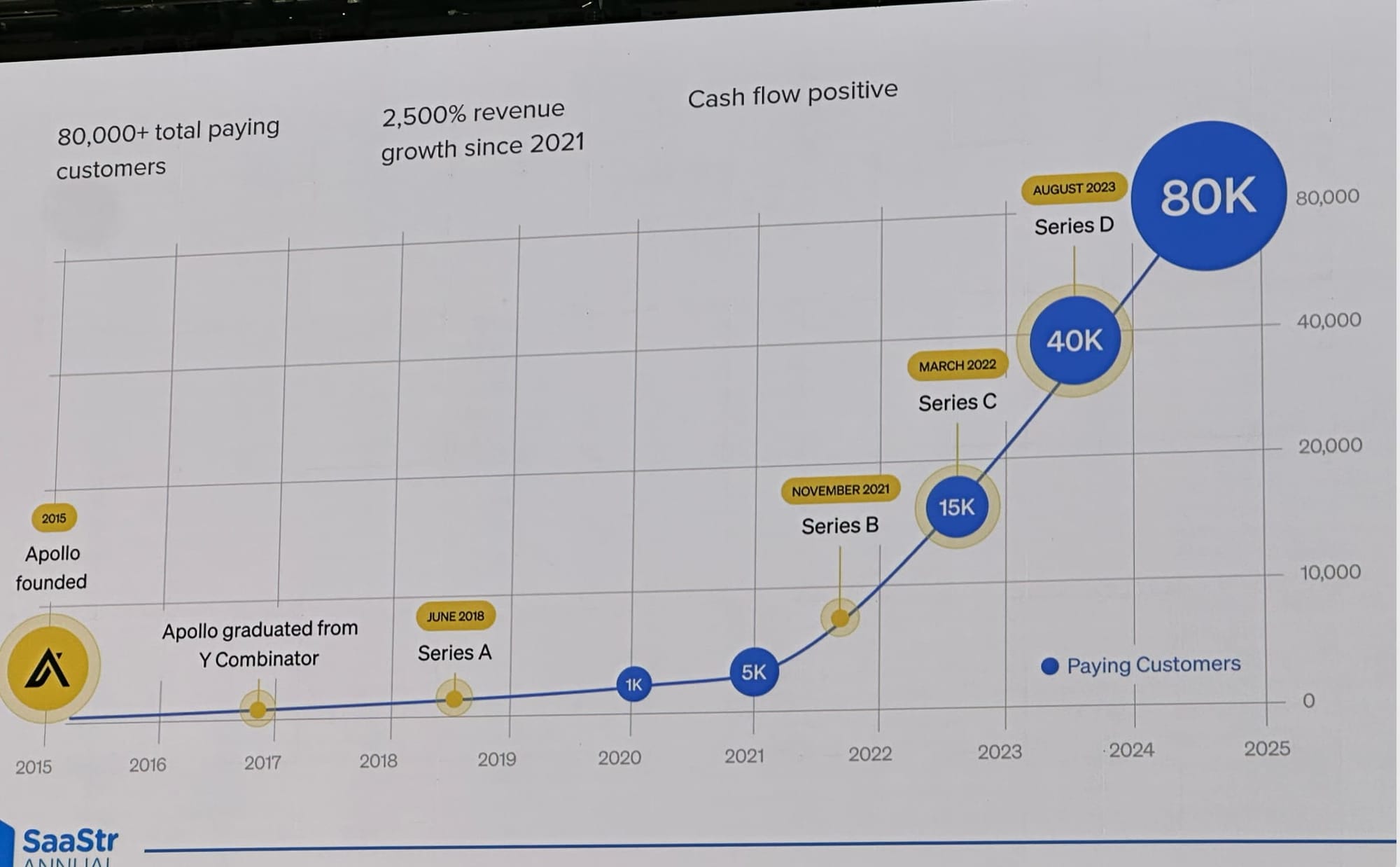
Apollo.io started strong, growing smoothly from zero to $2 million, then to $5 million in ARR. Initially, the company was entirely sales-led:
• SDRs (Sales Development Representatives) generated leads.
• AEs (Account Executives) closed deals.
• CSMs (Customer Success Managers) handled onboarding and retention.
However, in 2019, Apollo.io hit a wall:
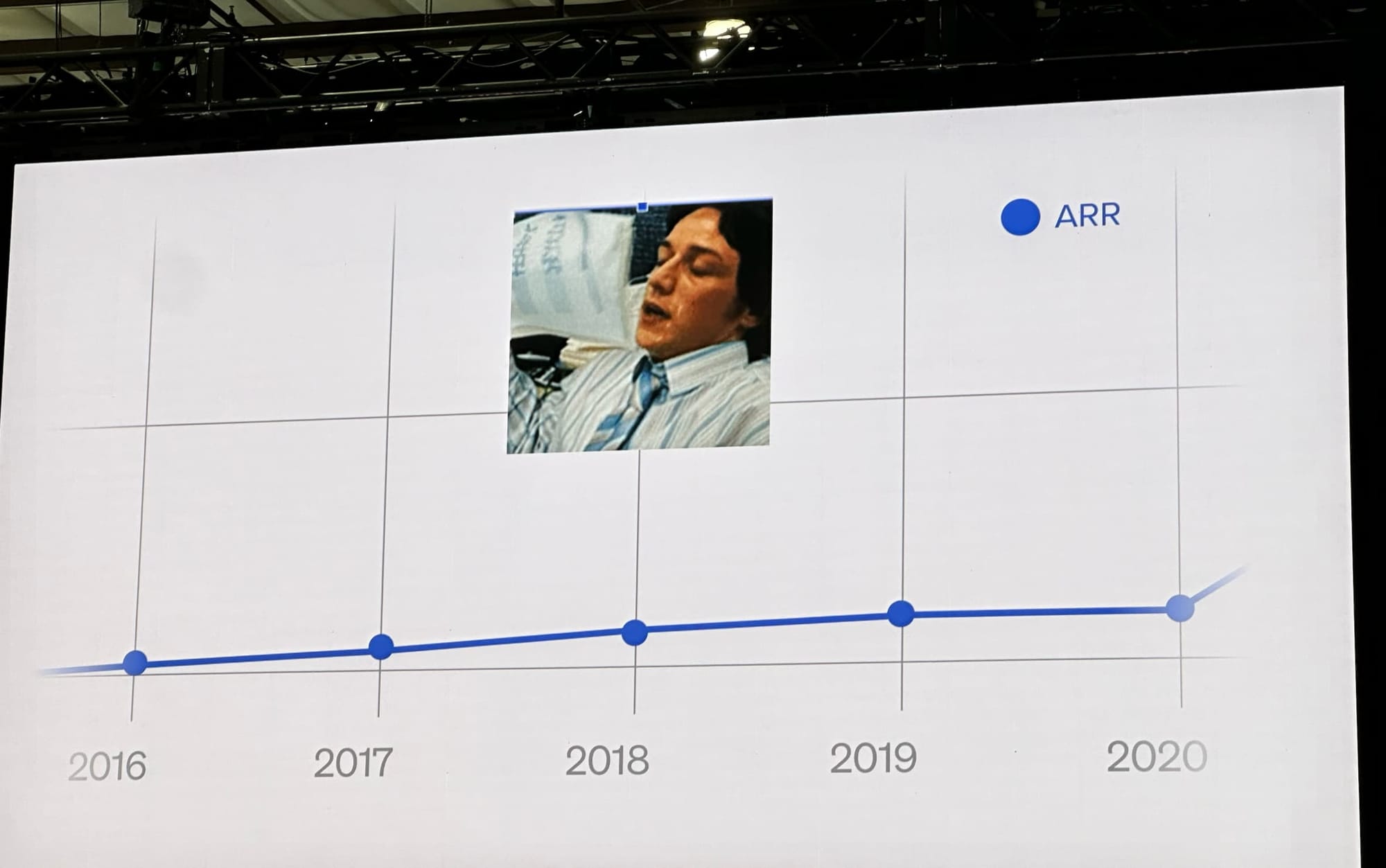
• Growth Stopped: Revenue plateaued unexpectedly.
• Cash Crunch: They burned through $9 million from their Series A funding and were down to their last $1 million, with less than six months of runway.
• Fierce Competition: Operating in a hyper-competitive sales tech market, competitors were outpacing them rapidly.
• Low Morale: Talent was leaving, and the team was demoralized.
The Strategic Reset
Facing these challenges, Tim realized that having a good product-market fit wasn’t enough. They needed a product-market-model-channel fit:
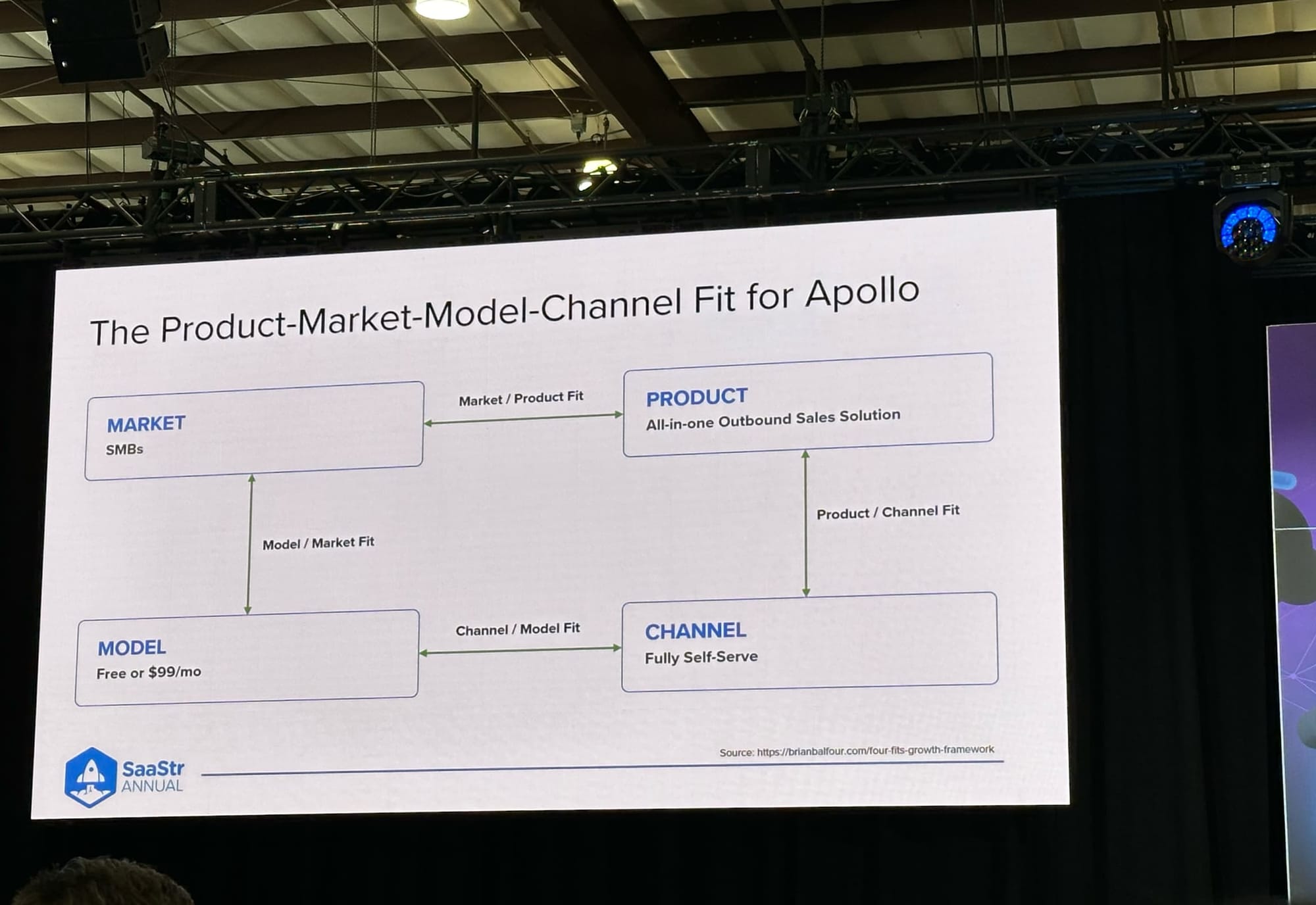
1. Product-Market Fit: They had a product that SMBs (small and medium-sized businesses) loved.
2. Model-Market Misalignment: Their pricing model, averaging $10,000 ACV (Annual Contract Value), was too high for SMBs but too low to sustain a traditional sales model.
3. Channel-Model Misfit: The sales-driven approach was too costly for the revenue it generated.
Bold Decisions Made
• Dramatic Price Reduction: Introduced a freemium model with plans starting at $9.90 per month to better suit SMB budgets.
• Shift to Self-Service: Transitioned to a fully self-serve, product-led growth model.
• Zigging Where Others Zagged: While competitors targeted mid-market and enterprise clients with expensive, sales-driven solutions, Apollo.io focused on being accessible to SMBs.
Restructuring the Team
With limited cash and a need for cultural change, tough decisions were inevitable:
• Downsizing: Reduced the team from 50 to just 10 employees.
• Shared Sacrifice: Founders and remaining team members agreed to work without salaries, embracing a “ramen life” to keep the company afloat.
• Cultural Revival: The lean team became more cohesive, motivated by a shared mission and newfound agility.
Executing the Transformation
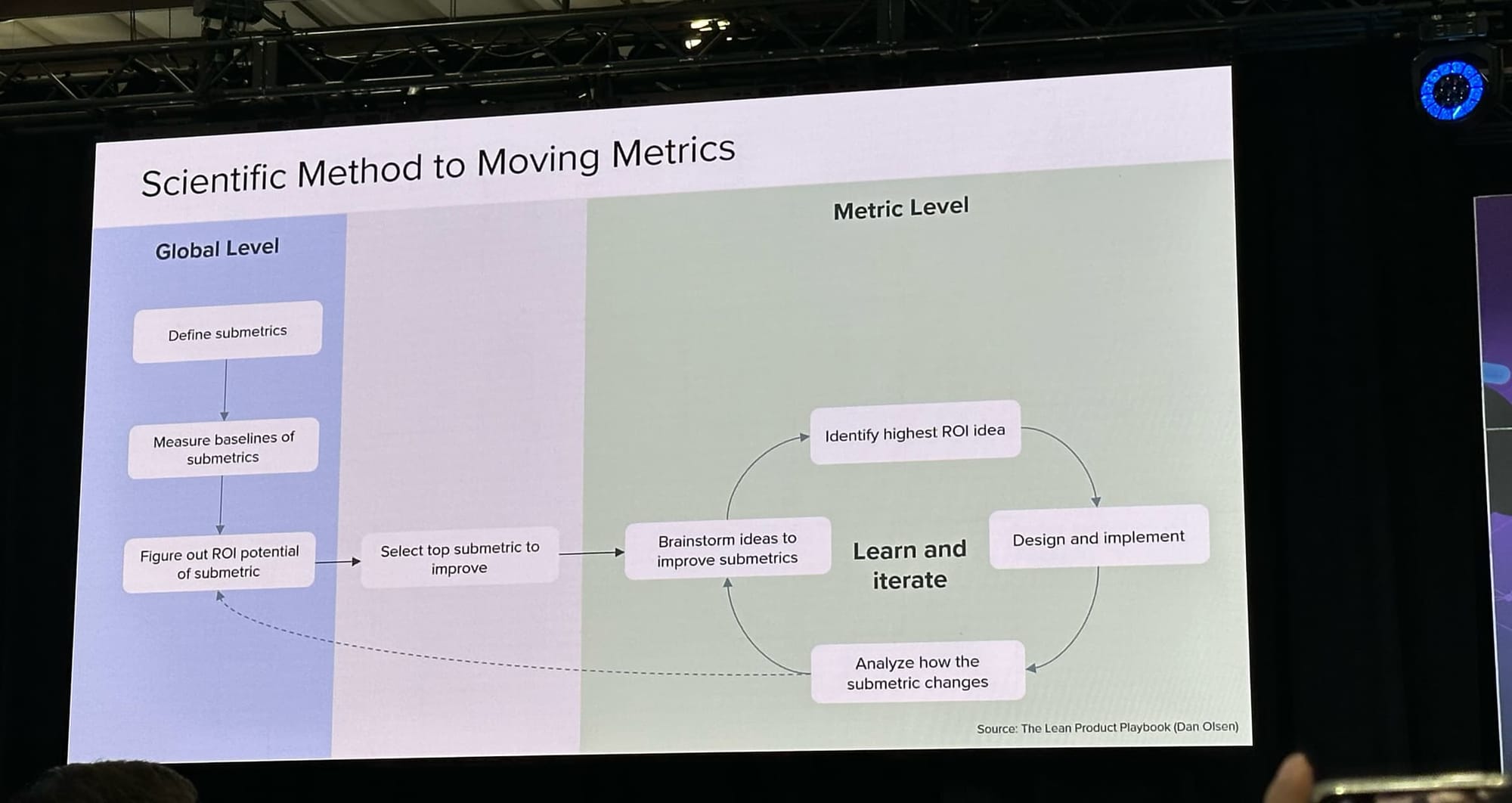
Understanding that PLG operates differently from a sales-led model, Apollo.io focused on:
1. Identifying Growth Levers: Recognized that PLG requires scaling user acquisition, activation, retention, and monetization in new ways.
2. Scientific Method for Metrics:
• Break Down Metrics: Deconstructed key performance indicators into actionable sub-metrics.
• Prioritize and Test: Focused on areas with the highest potential impact, implemented ideas, and iterated based on results.
3. Improving Retention: Enhanced user retention by 6x within a year by optimizing existing features rather than building new ones.
Reimagining Pricing
Adjusting the pricing model was risky:
• Potential Revenue Loss: Lowering prices from $10,000 to $1,000 ACV risked cannibalizing existing revenue.
• Data-Driven Approach: Conducted A/B testing which revealed that the new pricing increased conversion rates by 20x.
• Long-Term Gain Over Short-Term Pain: Despite an immediate drop in revenue as customers downgraded, the strategy led to greater adoption and scalability.
Innovative User Acquisition
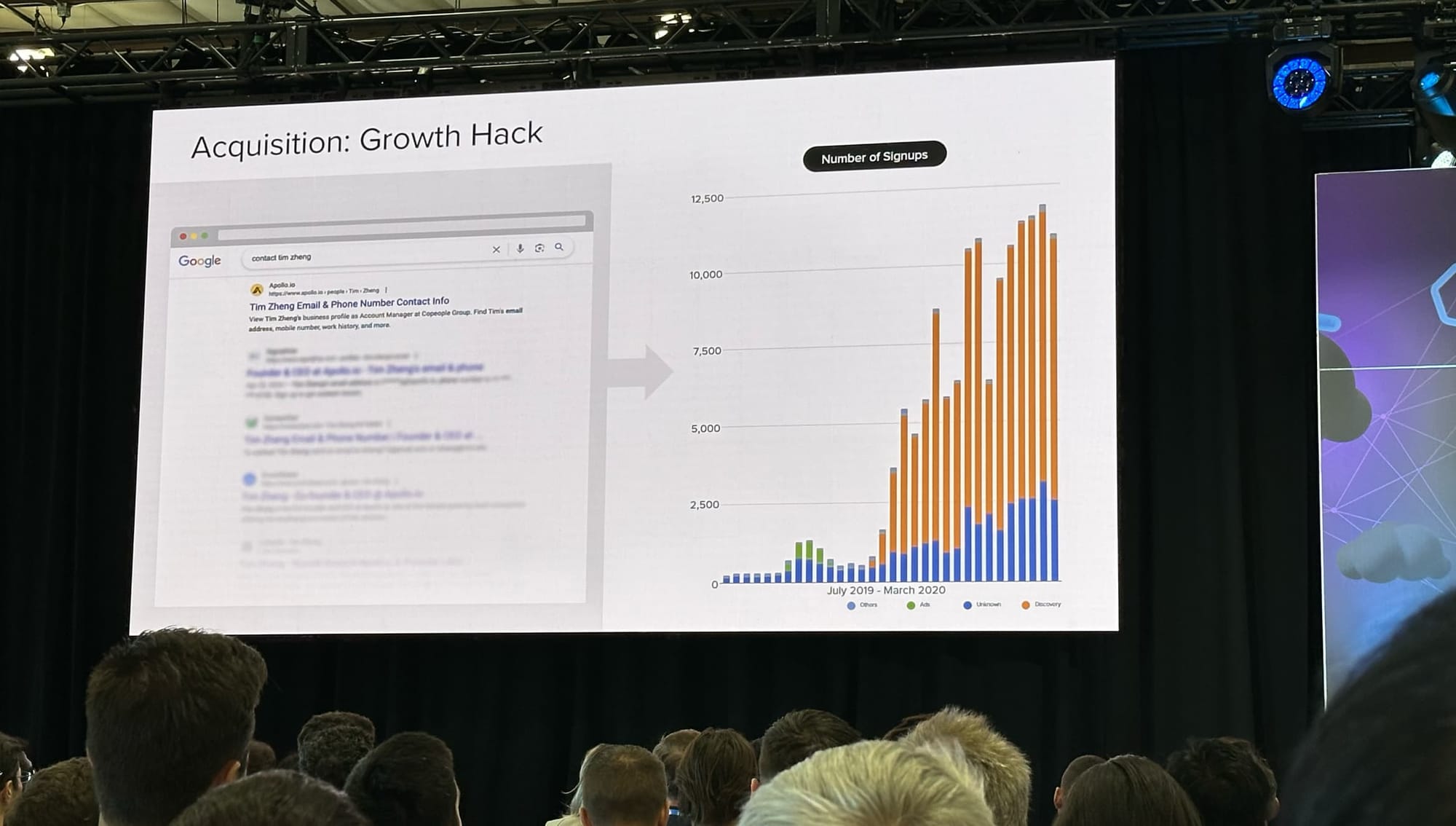
With limited funds, traditional marketing was off the table:
• SEO Hack: Leveraged their database of hundreds of millions of leads to create individual web pages for each contact, boosting organic search traffic dramatically.
• Understanding User Behavior: Recognized that their target users often searched for specific contact information, aligning their SEO strategy accordingly.
• Cost-Effective Growth: Achieved massive traffic increases without significant financial investment.
Fostering Virality and Word of Mouth
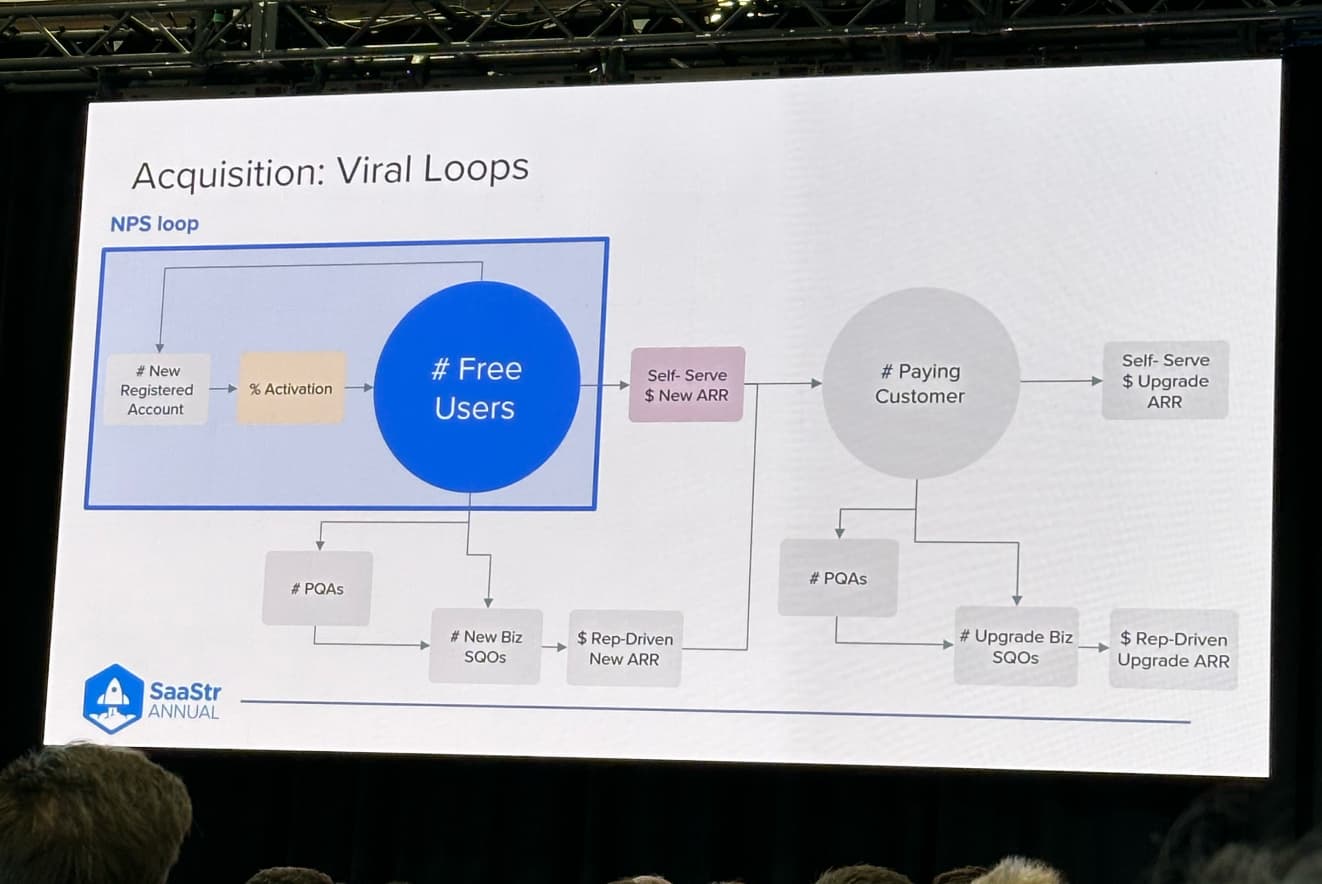
Realizing the power of organic growth:
• Improving NPS (Net Promoter Score):
• From 5 to 60: Over two years, they focused on enhancing user satisfaction, which in turn increased referrals.
• Addressed Pain Points: Systematically fixed issues causing low NPS and amplified features driving high NPS.
• Result: Over 90% of new sign-ups now come from organic word of mouth.
Redefining the Role of Sales
Transitioning to PLG didn’t eliminate the need for a sales team but redefined it:
• Eliminated Low-Value Interactions: Automated basic tasks and queries, reducing unnecessary human involvement.
• Focused on High-Value Activities: Sales reps now engage in strategic discussions with users already invested in the product.
• Improved Metrics: Reduced customer acquisition costs and increased conversion rates due to lower friction.
• Enhanced Job Satisfaction: Sales teams are more fulfilled, working on meaningful relationships rather than routine tasks.
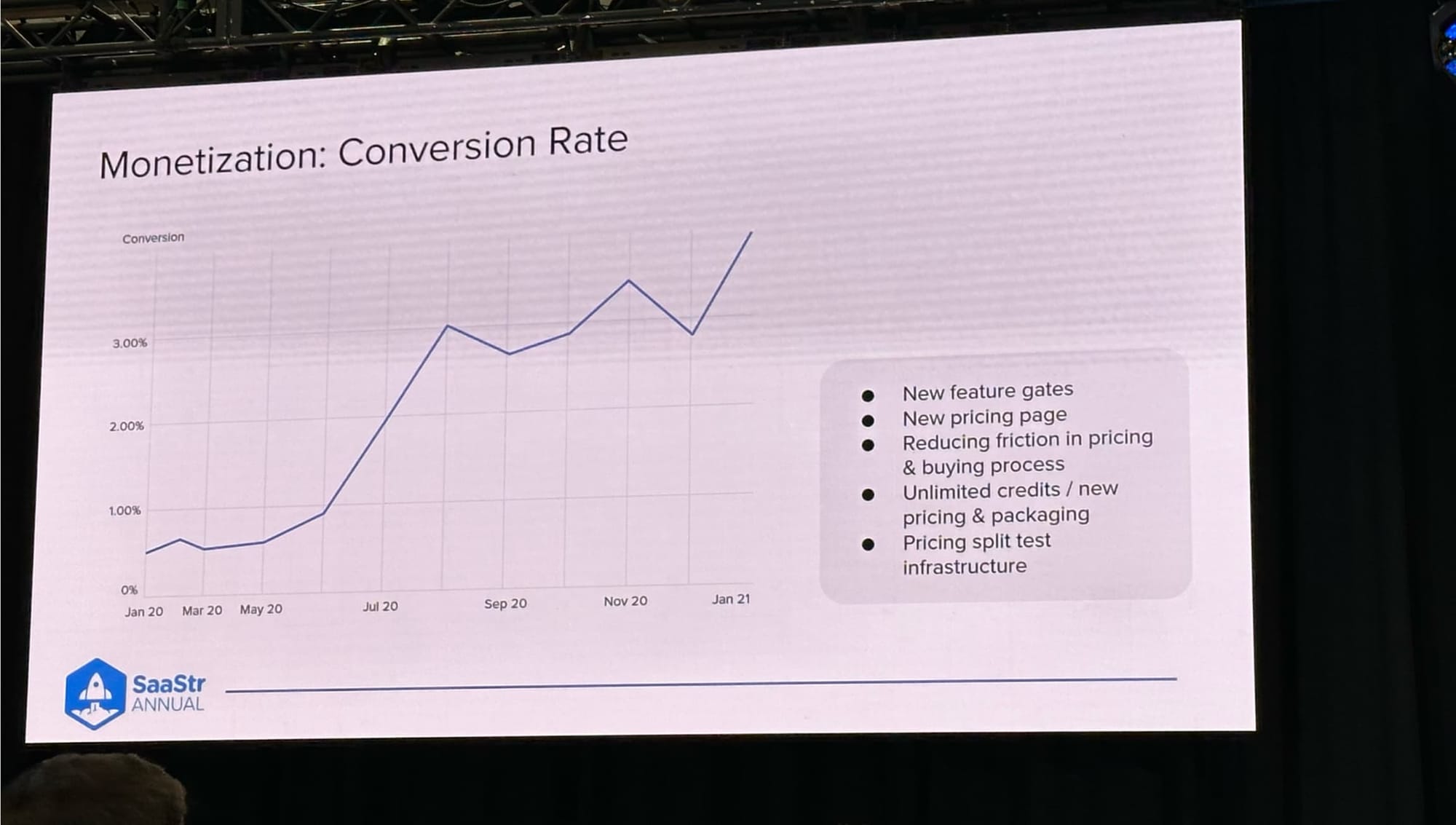
The Outcome:
• Revenue Growth: Increased revenue by over 25x while maintaining capital efficiency.
• Long-Term Vision: The transformation underscored the importance of patience and long-term planning, echoing Jeff Bezos’ philosophy that today’s success is built on years of prior effort.
Key Takeaways
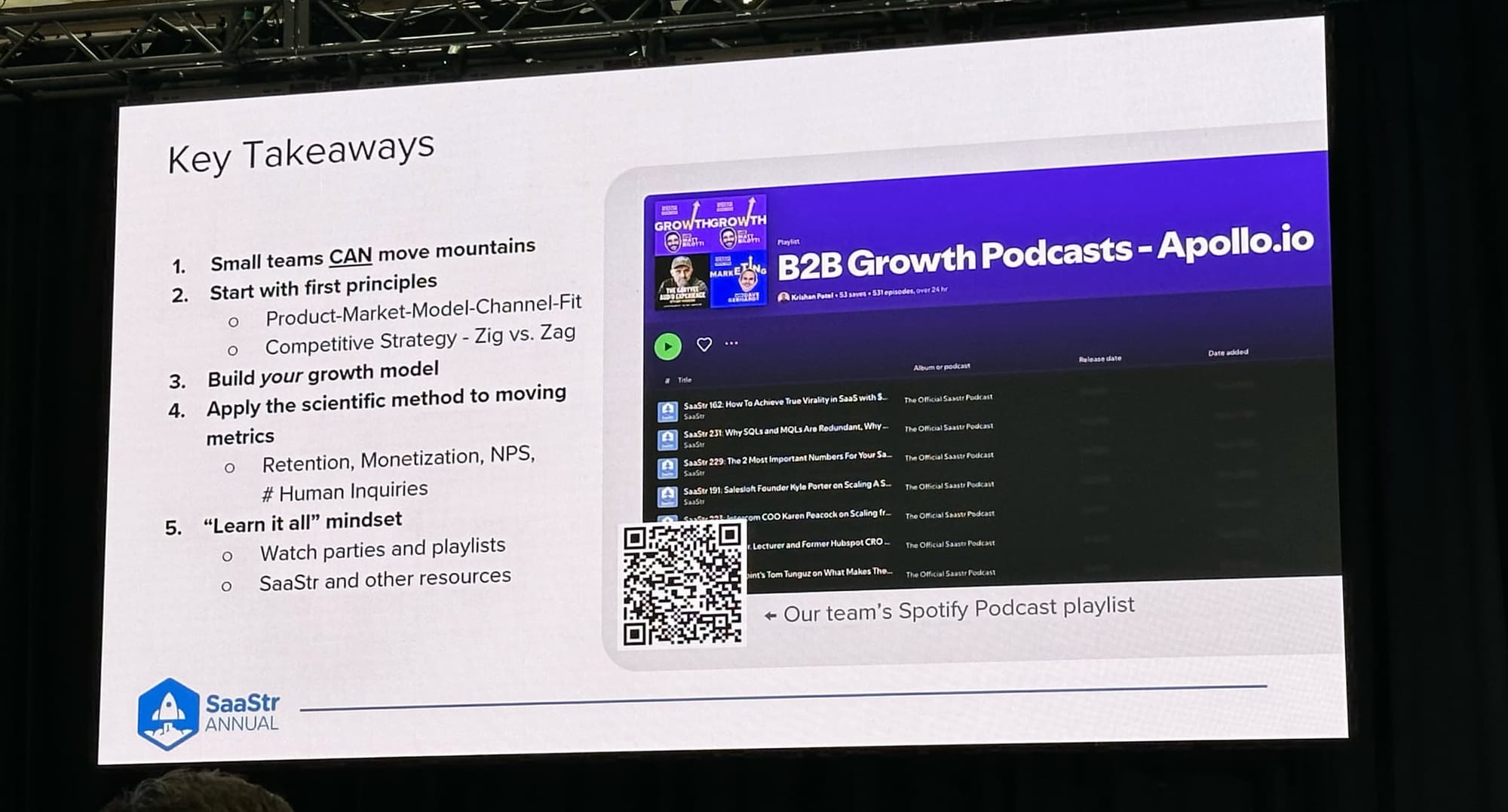
1. Small Teams Can Achieve Big Things: A focused, dedicated team can outperform larger competitors through creativity and agility.
2. First Principles Thinking: Challenging industry norms and making bold, data-backed decisions can open up new opportunities.
3. Systematic Approach to Growth: Applying a scientific, iterative method to improve metrics leads to significant, compounding results.
4. Continuous Learning Culture:
• Embrace a “learn-it-all” mindset.
• Leverage external resources like podcasts, books, and courses.
• Encourage team knowledge-sharing to stay ahead of industry trends.
Final Thoughts
Tim Zheng’s story is a powerful reminder that adversity can be a catalyst for innovation. By embracing bold strategies, fostering a culture of continuous improvement, and staying laser-focused on delivering value to users, Apollo.io transformed not just its business model but also its trajectory.
For entrepreneurs and business leaders, this journey underscores the importance of aligning your product, market, model, and channel. It also highlights the incredible potential that lies in small, dedicated teams willing to challenge the status quo.
Attending this presentation was truly inspiring, and I hope these insights from Apollo.io’s transformation provide valuable lessons for anyone looking to drive significant growth in their own ventures.
See you next year at Saastr SF
